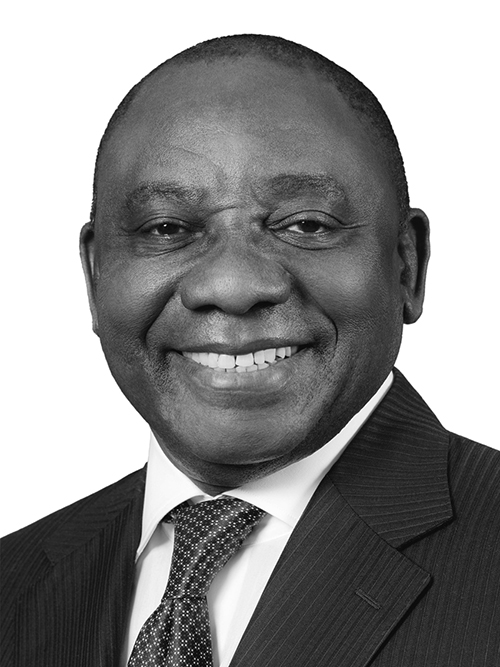Remarks by President Cyril Ramaphosa at the 8th ACT Accelerator Facilitation Council Meeting

Dr Tedros Adhanom Ghebreyesus,
Prime Minister Jonas Gahr Støre,
Members of the Facilitation Council,
Colleagues and Friends,
It is my pleasure to be addressing this 8th meeting of the ACT Accelerator Facilitation Council along with my colleague Prime Minister Støre and my brother Dr Tedros Ghebreyesus.
Since its formation, the ACT Accelerator has made remarkable progress in fulfilling its mandate to make available to the most vulnerable countries the tools they need to fight this pandemic.
Today’s meeting is as important and is as necessary as our first meeting.
The COVID-19 pandemic is far from over.
Even before the emergence of the new Omicron variant, many countries were experiencing rising infections, increasing hospitalisations and deaths.
As the events of the past few days have shown, we live with the threat from mutating variants, which have the potential to unleash further devastation in communities globally.
We do not yet know whether the Omicron variant is transmitted more efficiently, whether the variant increases the risk of reinfection, whether the variant causes more severe disease, or how effective the current vaccines are against the variant.
And yet, several countries have decided to isolate a number of countries on the African continent.
We should be concerned that some decisions are no longer informed by science and are not taken on the basis of exercising solidarity.
This pandemic has shown how we respond to a truly global crisis.
It has shown several shortcomings and weaknesses.
But we can and must improve how we respond to crises.
The lives and livelihoods of billions of people are at stake here.
We have repeatedly said that no-one will be safe unless we protect vulnerable populations everywhere.
We do have a part of the solution: the Access to COVID-19 Tools Accelerator, which, if fully funded, would provide low middle-income countries and low-income countries with vaccines, treatments, testing and PPE for frontline health care workers.
There are two important lessons we need to draw from the current situation.
Firstly, vaccine inequality is dangerous but it also completely avoidable.
A year into the world’s most ambitious vaccination drive, no country should lack sufficient access to vaccines.
Yet, of the nearly 7.5 billion doses of COVID-19 vaccines administered globally by mid-November, 71 per cent had been administered in high-income and upper-middle-income countries.
Only 0.6 per cent had been administered in low-income countries.
Africa is the hardest hit by inequitable access to these life-saving vaccines.
Secondly, we need to invest in all aspects of pandemic response.
Alongside vaccination, testing and genomic surveillance are needed to identify disease hotspots and track the emergence of new variants.
Treatments, including medical oxygen, are needed for those severely affected by COVID-19.
Exciting potential treatments are being developed.
We need to ensure that once they are proven to be safe and effective, they should be equally available to all countries.
For this reason we still insist on a TRIPS Waiver, even in its various forms where it can be negotiated.
We must invest in strengthening health systems because health systems are what turn vaccines into vaccinations and tests into testing.
We need research and development to adapt our tools and stay ahead of this mutating virus.
We need the full suite of countermeasures – they being vaccines, treatments, tests, functioning health systems, and personal protective equipment – to fight COVID-19 and save lives.
And the world needs the ACT-Accelerator to make this happen.
This initiative exists to fulfil the most vital purpose of all: to save lives.
We cannot falter and I would like to say that this is an area we dare not fail.
It is therefore necessary that global leaders come together to fully fund the ACT-Accelerator’s new Strategic Plan so that we can continue to save lives, and so that we can end this pandemic, not just for some, but for everyone, especially in the most vulnerable communities.
I would like to thank you for this opportunity to address you all.
I thank you.




